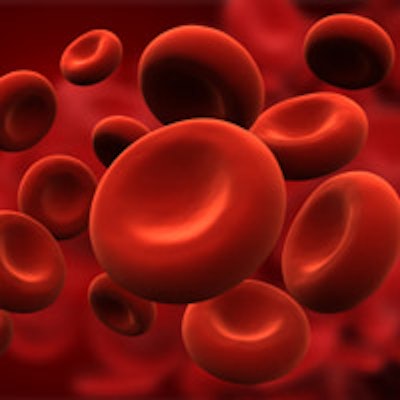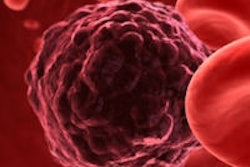
National Cancer Institute (NCI) researchers have found that antibodies against the human papillomavirus (HPV) may help identify individuals who are at greatly increased risk of HPV-related cancer of the oropharynx.
In their study, published in the Journal of Oncology (June 17, 2013), at least 1 in 3 individuals with oropharyngeal cancer had antibodies to HPV, compared with fewer than 1 in 100 individuals without cancer. When present, these antibodies were detectable many years before the onset of disease.
These findings raise the possibility that a blood test might one day be used to identify patients with this type of cancer, the researchers noted in a press release.
Incidence of oropharyngeal cancers is increasing in many parts of the world, especially in the U.S. and Europe, because of increased infection with HPV type 16 (HPV16). Persistent infection with HPV16 induces cellular changes that lead to cancer. HPV E6 is one of the viral genes that contribute to tumor formation. Previous studies of patients with HPV-related oropharynx cancer found antibodies to E6 in their blood.
The current study found not only that the E6 antibodies are present prior to diagnosis but that in many cases the antibodies are there more than a decade before the cancer was clinically detectable, an important feature of a successful screening biomarker, said lead investigator Aimee Kreimer, PhD.
Kreimer and her colleagues tested samples from participants in the European Prospective Investigation into Cancer and Nutrition Study, a long-term study of more than 500,000 healthy adults in 10 European countries. Participants gave a blood sample at the start of the study and have been followed since their initial contribution.
The researchers analyzed blood from 135 individuals who developed oropharyngeal cancer between one and 13 years later, and nearly 1,600 control individuals who did not develop cancer. The study found antibodies against the HPV16 E6 protein in 35% of the individuals with cancer, compared with less than 1% of the samples from the cancer-free individuals. The blood samples had been collected on average, six years before diagnosis, but the relationship was independent of the time between blood collection and diagnosis. Antibodies to HPV16 E6 protein were even found in blood samples collected more than 10 years before diagnosis.
The scientists also found that HPV16 E6 antibodies may be a biomarker for improved survival, consistent with previous reports. Patients in the study with oropharyngeal cancer who tested positive for HPV16 E6 antibodies prior to diagnosis were 70% more likely to be alive at the end of follow-up, compared with patients who tested negative.



















